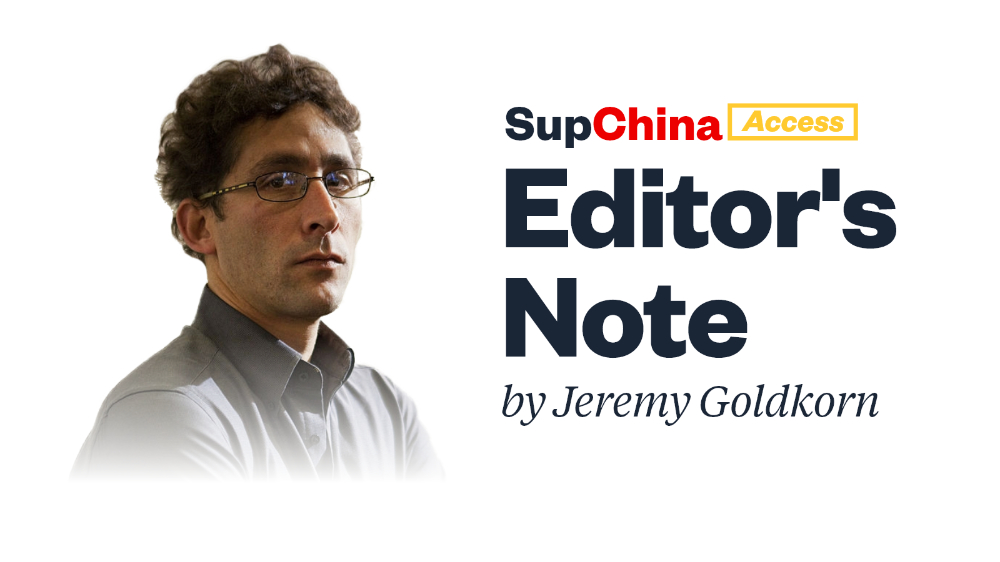Editor’s note for Thursday, August 6, 2020
A note from today's editor of the The China Project Access newsletter.

My thoughts today:
Correction: Thanks to Bill Bishop for a correction: Yesterday, we mentioned an essay (in Chinese) published by the Communist Party journal Seeking Truth about China fighting a “protracted war for prosperity amid uncertainties.” The piece was actually republished from the Beijing Daily, which is the newspaper of Beijing’s Party branch, and does not carry quite the same weight as something written especially for Seeking Truth.
What about Africa’s fish? Yesterday, I republished comments from Liberia’s former Minister of Public Works, W. Gyude Moore, about why Africa will not take sides in the building confrontation between the West and China: Essentially, China is building infrastructure in Africa while the West is not.
But there is something that could disrupt that: environmental degradation caused by Chinese companies and organizations. One area of friction that is building fast is over fishing rights. Eric Olander at our partner the China-Africa Project had this to say in its daily newsletter today:
China appears to be launching a significant expansion of its distant water fishing fleet around the world and most notably in Africa… China’s distant fishing companies are apparently quite sophisticated in preying on weak governance in countries like Ghana and Liberia, where they mask their operations by registering vessels under local flags and sidestepping fishing regulations by offloading their cargos in international waters…
As the fishing grounds in Africa’s coastal waters are steadily depleted, the impact will be felt across entire countries. Local communities that depend on fishing will wither and a once important source of protein will no longer be available for countries that now face increasingly dire food security challenges. This also means that African countries will have to spend more of their limited foreign exchange reserves to import food to make up for the loss.
But standing up to the Chinese isn’t easy and most African countries don’t have much experience doing so. All they have to do, though, is refer to section 3.5.6 of the 2018 Forum on China Africa Cooperation (FOCAC) Action Plan [which states that China supports Africa in the capacity-building of maritime law-enforcement and environment protection to ensure the security of maritime resources] and put the burden back on the Chinese side…
These are promises China made and should be obligated to keep. African governments have to do their part too and hold the Chinese accountable.
The next FOCAC will take place in less than a year in Dakar, and African negotiators must insist that fishing and maritime conservation gets the attention it deserves. If it’s brushed aside as it has been so far, the consequences will be tragic.
See also this news from Ecuador:
- ‘They just pull up everything!’ Chinese fleet raises fears for Galápagos sea life / Guardian
- China to let Ecuador supervise fishing boats in vulnerable waters off Galapagos / Reuters via SCMP
Our word of the day is clean internet campaign (净网行动 jìngwǎng xíngdòng), which is how Chinese-language news outlets are translating Mike Pompeo’s newish catchphrase — see story 1 below for details.
—Jeremy Goldkorn, Editor-in-Chief






